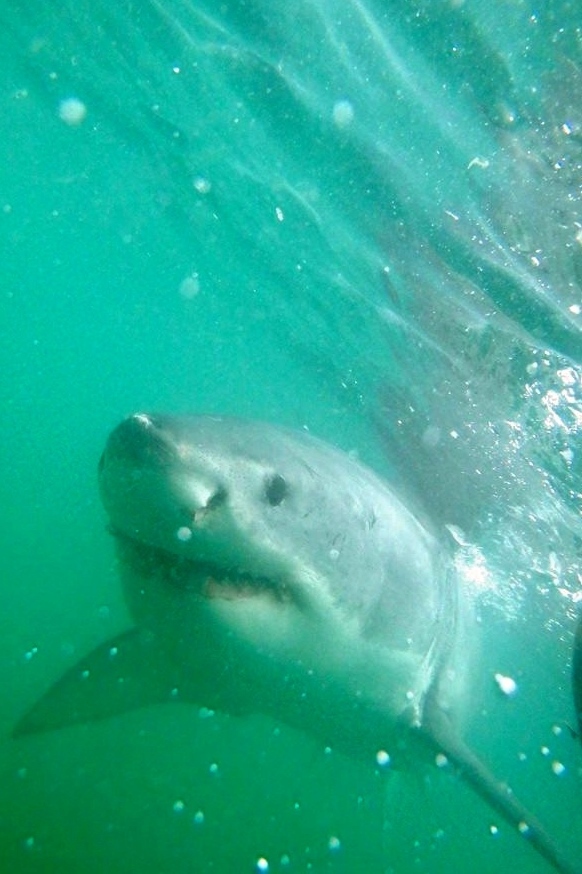This summer, I had the privilege to travel to South Africa for a month and work with the White Shark Africa: Shark Warriors volunteer program. I discovered this program by seeing a flyer on the bulletin board in the Bioscience building. Although I did not know any Occidental students who had done this program in the past, I decided to apply for it because of my passion for shark conservation. The White Shark Africa program accepts sixteen volunteers each month, where these volunteers get to live in a house in the city of Mossel Bay for four weeks. The program consists of cage diving, shark identification, shark breach viewing, benthic shark tagging, and much more. Once I was accepted into the program, I immediately booked my flights and awaited the amazing experience that I was about to embark on.
Upon arriving in South Africa, I was instantly amazed at how beautiful the country was. The program leaders were very friendly and excited to have new volunteers to work with. When we got to the house, the agenda board was already filled with so many amazing activities. The agenda for the week typically consisted of going on the Shark Warriors cage diving boat three times a week, tagging small benthic sharks twice a week, shark breach viewing once a week, and one day set aside for fun tourist activities like cave exploring, bungee jumping, visiting wildlife reserves, and recreational diving. When we went out on the Shark Warriors cage diving boat, we would travel out to seal island, chum the water, throw the tuna head bait-line in the water, and wait for the sharks to arrive. Once sharks started approaching the bait, the volunteers would switch off between cage diving and shark identification. For the shark identification process, we recorded the estimated length of the shark, the gender, the type of tag the shark possessed (if present), and the specific markings found on its body. There were sharks that even had their own names due to the very distinct markings found on their body. Kinky was by far one of the largest and feistiest sharks I encountered in South Africa. Whenever she swam by the boat it almost felt like we were at a Sea World show because she would deliberately splash us with her tail as we recorded data. My favorite memory from visiting South Africa was the first time I got to cage dive with the Great White Sharks. I will never forget the feeling of seeing these majestic predators in their natural habitat for the first time. It was absolutely incredible.
The White Shark Africa volunteer program, co-owned by Craig Ferreira and Christo Kruger, is such an amazing program because the leaders, the volunteers, and the crew members are all so passionate about protecting sharks and conserving our marine ecosystems.
There are so many TV shows and movies in the media that portray sharks as mindless eating machines to the general public- this could not be farther from the truth. When I was in the cage, the sharks were only interested in eating the bait and would occasionally swim by the cage to simply check us out. Since we shared the boat with tourists, it was so interesting to see their surprised reactions to the fact that the sharks did not try to tear the cage apart and eat us alive. In order to continue shark conservation efforts, it is so essential to eliminate the false perception of sharks that people have. I learned so much from being in the White Shark Africa volunteer program and am so grateful I got to work with such amazing people who share the same passion for sharks and marine conservation. It was the best experience of my life and I strongly recommend the program to anyone who is passionate about sharks or marine biology. My email is mlu@oxy.edu if anyone has further questions about the program or my experience there.

